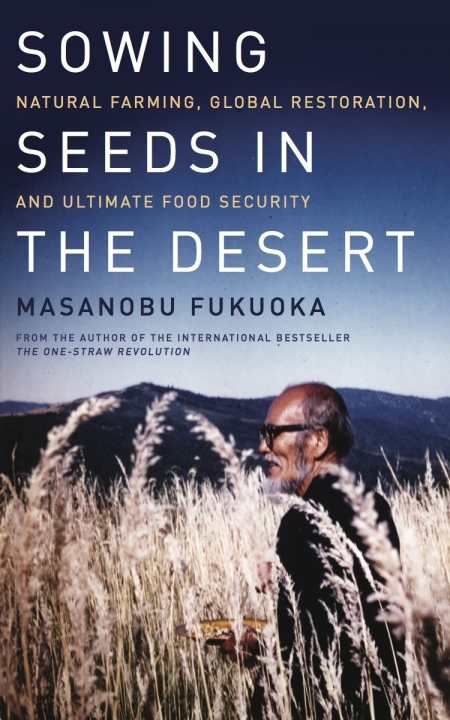Sowing Seeds in the Desert
Small-scale and urban farming as well as sustainable living and organic food purchasing are so prevalent right now that these practices are moving from a foodie trend to a fundamental shift in our food system. One of the people to thank for that momentum is Masanobu Fukuoka, whose The One-Straw Revolution became a must-read for organic farmers and their supporters around the world.
Before his death in 2008, Fukuoka spent decades working on natural farming techniques that he felt could benefit the world. He didn’t plow his field, use fertilizer, or flood his rice fields, in keeping with the methods traditional to many indigenous cultures. Commonly referred to as “Do-Nothing Farming,” his techniques are part of a wider philosophy about respecting nature’s own principles and rhythms.
The success of his work sent Fukuoka from his small village in Japan to speaking engagements across the world, where he spent a great deal of time addressing issues of limited resources in areas like Africa, India, and Southeast Asia. In this, his last major book, Fukuoka draws from those experiences to create, once again, a timeless work that has the ability to create a revolution in agriculture.
Based on his experiences in drought-stricken areas, Fukuoka details his plan to re-vegetate the deserts of the world by using his natural farming strategies. Along the way, though, he gives his viewpoint on a wide range of seemingly unconnected topics, such as Western versus Eastern medicine, the fear of death, capitalist economies, and the law of causality.
All of these threads are expertly woven together when he writes about global desertification and soil depletion. Although the most glaring examples are in Africa, Fukuoka believes that many parts of Europe and the United States are suffering from poor agricultural practices that are leaving the soil close to long-term vegetation loss. Mono-cropping, for example, in which a single type of plant dominates multiple acres (like corn and soybeans) is foreign to nature’s pattern and leads to erosion and soil compaction, with eventual desertification as a result.
Beyond Fukuoka’s important philosophy, his book is a lyrical, lovely valentine to nature. He’s passionate about bringing other people to the near-enlightenment state in which he lived, where every single leaf moved him to appreciation. He writes, “When I viewed the world with an empty mind, I was able to perceive that the world before me was the true form of nature, and the only deity I would ever worship.”
Expertly argued and backed by experience, anecdotes, and simple logic, Fukuoka’s last work shines just as brightly as his first.
Reviewed by
Elizabeth Millard
Disclosure: This article is not an endorsement, but a review. The publisher of this book provided free copies of the book and paid a small fee to have their book reviewed by a professional reviewer. Foreword Reviews and Clarion Reviews make no guarantee that the publisher will receive a positive review. Foreword Magazine, Inc. is disclosing this in accordance with the Federal Trade Commission’s 16 CFR, Part 255.

